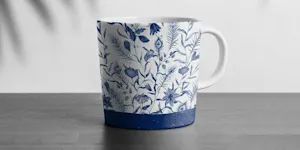What Makes This Word Tick
"Nettle" has an interesting dual personality. On one hand, it's a mischievous little plant known for its stinging hairs that can irritate your skin. On the other, as a verb, it means to annoy or irritate someone. Its dual meaning gives it a prickly charm, quite literally!
If Nettle Were a Person…
Imagine Nettle as a cheeky neighborhood prankster with a heart of gold. Quick-witted and always ready with an unexpected surprise, they'd keep you on your toes, but you'd miss them if they weren't around.
How This Word Has Changed Over Time
This word has stayed surprisingly consistent across centuries. "Nettle" has been troubling people with its sting since before Shakespeare's time, when it was already used to describe both the plant and the action of annoying someone.
Old Sayings and Proverbs That Use Nettle
An old English proverb advises to "grasp the nettle," which means to tackle a difficult issue with determination. It suggests not shying away despite the potential sting, quite an insightful metaphor.
Surprising Facts About Nettle
Did you know that nettles are more than just a nuisance? They're highly nutritious, full of vitamins like A and C, iron, and magnesium. Nettle tea is a popular herbal remedy, bringing wellness from something that initially seems unpleasant.
Out and About With This Word
You'll often find "nettle" in discussions about gardening, foraging, and even herbal medicine. It's a word that travels between nature enthusiasts and culinary circles alike, making it oddly versatile.
Pop Culture Moments Where Nettle Was Used
Nettles sneak into literature and film as symbols of irritants and unexpected allies. They’ve appeared in works from Diana Wynne Jones’ magical novels to the rugged survival scenes in various adventure movies.
The Word in Literature
Thomas Hardy, the Victorian novelist, was fond of using "nettle" to describe not just the plants in his novels' rustic settings, but also the emotional sting characters might feel from a sharp comment or a quarrel.
Moments in History with Nettle
In medieval times, nettles were used to make nettle cloth, a type of fabric. This practice was revived during World War I when cotton was in short supply, showing nettle's historical importance in resilience and resourcefulness.
This Word Around the World
In Germany, nettles are called "Brennnessel," which literally means "burning nettle," highlighting the plant’s fiery sting. In Japan, its relative is used in making a traditional type of paper.
Where Does It Come From?
The word "nettle" hails from the old English "netele," deriving from the Proto-Germanic word "natilon," which also meant a plant that stings — a rather persistent lineage.
How People Misuse This Word
Some folks mistakenly use "nettle" when they mean "needle" due to the phonetic similarity. Remember, one stings like Mother Nature's own acupuncture, while the other sews!
Words It’s Often Confused With
Needle: Both words sound alike, but "needle" refers to a sewing tool.
Nettle: This can be confused with "neuter," given their similar starts, but they diverge drastically in meaning.
Additional Synonyms and Antonyms
Synonyms for "nettle" include "irritate," "vex," and "annoy." As for antonyms, you might consider "soothe" and "calm."
Want to Try It Out in a Sentence?
After trying to ignore the situation for too long, Jane knew it was time to grasp the nettle and confront her coworker directly.
















